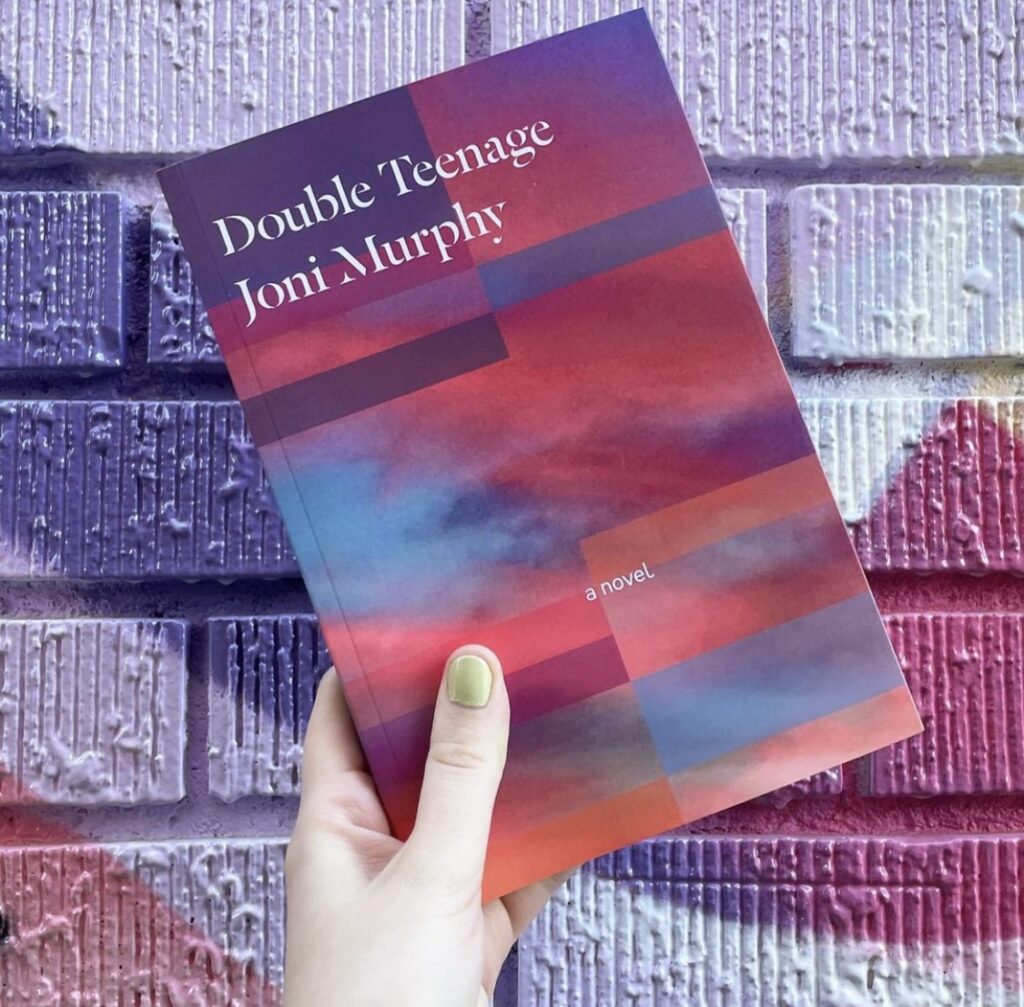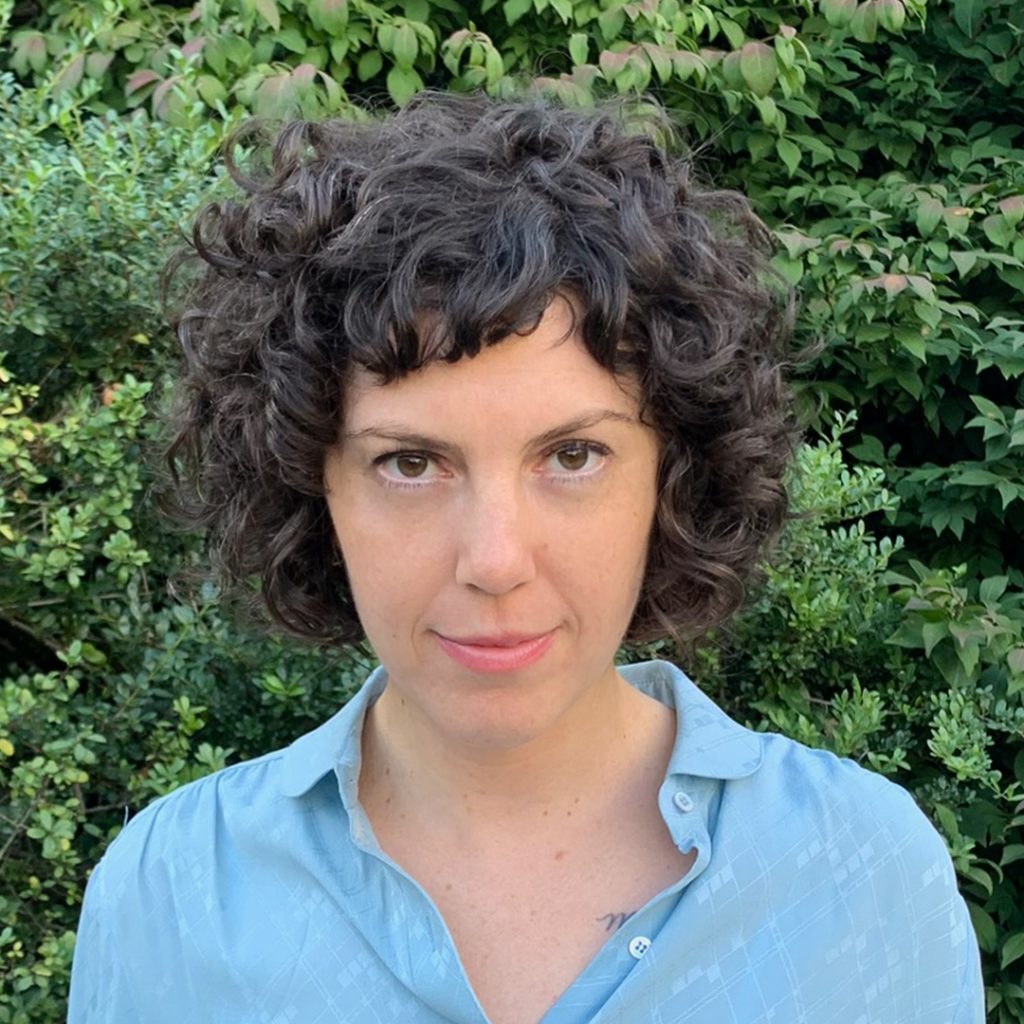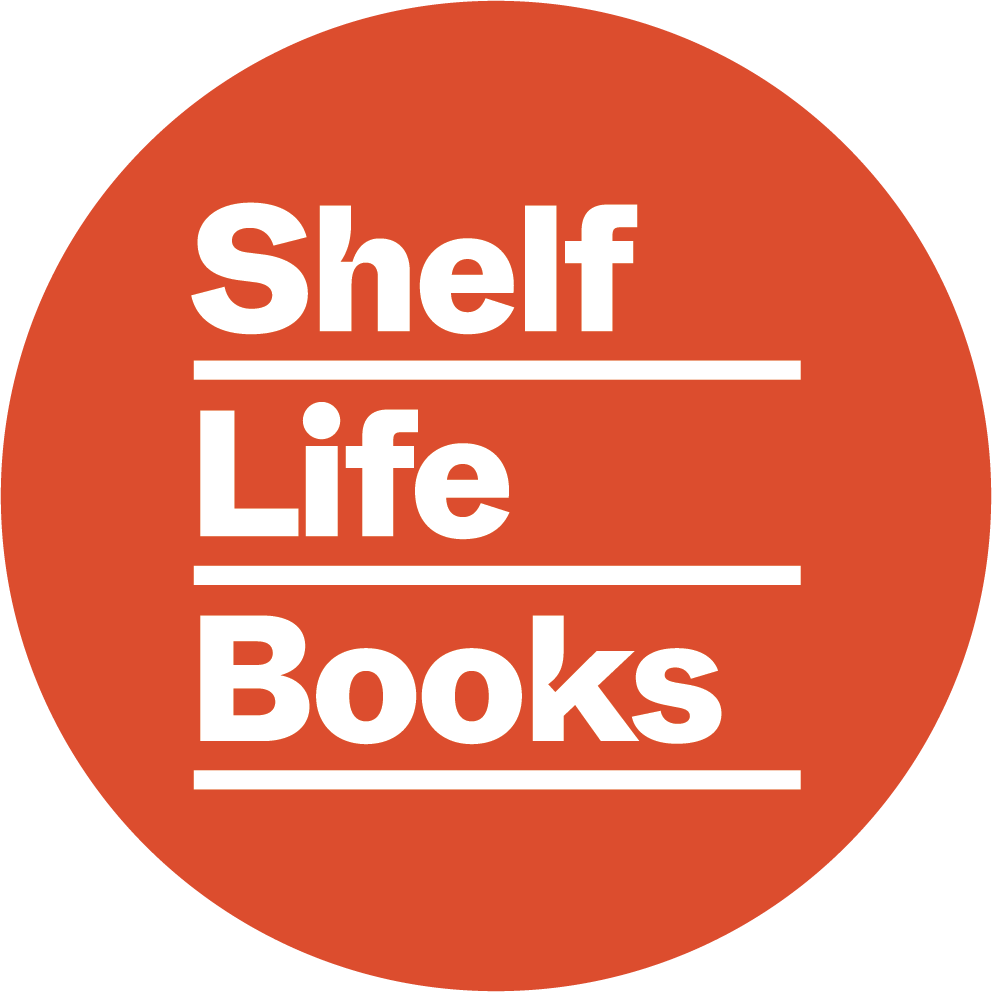
For January, we’re excited to be reading (or in some cases, re-reading) Double Teenage by Joni Murphy, one of our all time favourite titles from Book*hug Press. Double Teenage tells the story of two best friends coming of age in the 1990s along the US-Mexico border. This unrelenting novel shines a spotlight on the paradoxes of Western culture and offers a way through violence into an emotionally alive place beyond the trap of girlhood.
“Like the Celine and Julie of Jacques Rivette’s film, Joni Murphy’s protagonists are highly attuned to magical forces. But, growing up Las Cruces, New Mexico, a town that they separately flee for points north, the magic they see is infused with unfathomable violence. From the micro-inflictions of ‘self harm’ to the criminal and systemic violence that surrounds them, they struggle to make sense of their surroundings by whatever means are available to them: sex, romance and drugs; literature and fashion; art, theater, and critical theory … In an effort to understand, if not everything, at least those things that surround her protagonists, Murphy writes with an unforced and calm beauty.” –Chris Kraus, author of I Love Dick
INTERVIEW with JONI MURPHY

We talked to Joni this month about her novel, the desert and new projects on the way.
Can you talk about the relationship between your book and the movie Celine and Julie Go Boating?
I first sought out Celine and Julie Go Boating because it was mentioned in an essay as one of David Lynch’s inspirations for Mulholland Drive. It was a very passing reference and I’d never heard of the film, but the argument was that both those films share some DNA with Alice in Wonderland and that piqued my interest.
It’s weird to remember, but then it was hard track down the film. It wasn’t yet a poster child of the Criterion Channel. I think Jacque Rivett has had a renaissance in the last decade, In 2010, Celine and Julie was not in the zeitgeist. I couldn’t find a recording in Chicago, and I looked. I eventually tracked in down on YouTube, obscurely labeled and broken up into many parts to evade copyright rules.
I watched it on my laptop. I was then staying temporarily in windowless room in my friend’s apartment while in the midst of the dissolution of a catastrophe of a relationship, just devastation to my soul. How I got to the film feels relevant as that life experience melded with the content of the film and in a way, gave me Double Teenage. When I watched it in that broken up way on the floor of a dark room, Celine and Julie felt like mine. The film I’d been waiting for my whole life had been made well before I was born. Thank god I found it.
The film contains such a moving, theatrical, honest depiction of female friendship. And despite all the charming play they do, all the running around Paris, the thing they keep coming back to is quite sad and disturbing. Every time they visit the magical house to see this repeating drama, the story ends with a little girl’s murder. At first, they witness, but eventually they try to intervein. The repetitions can only end when they succeed somewhat in removing the girl from the violent, decaying space she’s been trapped in and bringing her into their lively, vivid present.
It makes me think of the Freud essay “Repeating, Remembering, and Working Through” in that Celine and Julie keep coming back to a kind of dream space to figure something out. At the heart of their encounters there seems to be some trauma, this was, and is, very much my interpretation. I don’t know if everyone watches the film in this way. But at that time and place, the films beautiful style, the play between artificiality and naturalism, the two actresses’ rapport, the split worlds, along with the core questions about witnessing and intervening, it all just entered my being. The film and alchemized with my life at the time and all the writing and research I’d been doing about New Mexico and the borderlands. Double Teenage was in one way my attempt to explain everything I see in it.
How do you think growing up in New Mexico affected your work and descriptions of the desert?
Place is such a thing for artists—whether it’s the places you grew up in or the place you choose to live in— all of our memories are grounded in the places where they happened. So I had to write about New Mexico. Where I came from made the work.
Even though I grew up only a mile and a half from a university Campus that had a golf course, a football stadium, a whole artificial landscape of colligate life, my childhood home was on a dirt road. Everything around the university, and the strip malls, and the little homes with backyards and pools, was the desert. The desert is very imposing, it has an edge, you know the landscape itself can kill you. That’s part of the mythos of the west that I learned as a kid. But it’s also quite delicate and subtle.
I am protective of Southern New Mexico in a way, because I feel like its overshadowed by other parts of the state, and so I do my best to describe that particular part of desert as it was for me, a kid from there.
What is the importance of theatre in the novel? Does it read as a Shakespearean tragedy or comedy to you?
Isn’t a truism that the difference between Shakespeare’s tragedies and comedies are mainly the endings? The mechanics of stories unfold in similar ways but at the end of the comedies social order is restored and everyone’s appropriately paired up, whereas at the end of the tragedies everyone is dead.
Because of, for lack of a better term, modern life, I don’t think I’m capable of committing to art that concludes as up or down as that that. Double Teenage reads closer to how I experience life, in that a bunch of people who didn’t deserve it are dead and those of us who survived don’t have a clear sense of what social order would look like. My main characters do survive I guess, so that’s something, but the world the inhabit is littered with bodies. Celine and Julie are my Rosencrantz and Guildenstern. I probably aspire to something more like Stoppard than Shakespeare.
How do you feel about Double Teenage looking back on it now, almost seven years later?
It’s hard to think about the books’ life span without also considering those specific seven years, and that’s quite a mindfuck. I do feel like the conditions that made the book are still very much in place, socially.
While writing I tapped into my anger at the misogyny, racism, and violence that was, and remains, woven into the North American fabric. I was looking back at the 2000s while I wrote and the felt in many ways, horrifying. I think that’s why it struck some readers, because the time of the book felt familiar even if it was also about my specific group of obsessions. I feel proud of the book and happy that’s it still be out there carrying a charge of how I felt. But also, for sanity’s sake, I try to let my writing go and get along without me, because sometimes the response, good or bad, is too much for me to metabolize.
Double Teenage is very different from your sophomore book Talking Animals. Do you think there is an unseen connection between the two?
I can only operate from my position, but to me the continuum of the two books is there. Under the surface many connecting threads. Both books grapple with systemic violence, education, characters wondering how to live when what you know physically and spiritually doesn’t align with what you’re expected to do to survive.
Also, girls and animals, the subjects of the two books have so much in common conceptually. historically there’s so much in the European tradition that, in the project of defining the rational subject —white, male, landing owning, etc.— pushes girls and animals together. They’re both fetishized and degraded, seen as cute or terrifying.
But of course, they’re different. Maybe the writing of the second was a reaction to the first. I wanted to expand, try something different, be funnier and write about situations that felt absurd rather than wrenching. The pendulum swings, I suppose.
Is there a new book or project you are working on?
I’ve been working on something, trying to take it slow. The novel has to do with all my persistent, kind of retro, obsessions: women’s domestic lives, acting, communal violence, the military industrial complex, and films made in the 1970s film. It will come together somehow.
